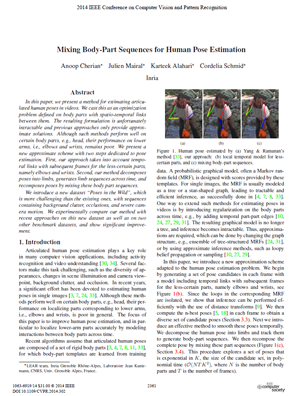Seminar on Current Works in Computer Vision
Prof. Thomas BroxComputer Vision is a very active research field with many practical applications, for instance in quality control, robotics, or driver assistance systems. The goal of Computer Vision is to imitate the flexibility and robustness of the human visual system. Research has made significant progress in recent years particularly due to deep learning. Most relevant research in Computer Vision has shifted to improving deep learning methods.
In this seminar we will take a detailed look at some of the most interesting recent works. For each paper there will be one person, who performs a more detailed investigation of a research paper and its background and who will give a presentation. The presentation is followed by a discussion with all participants about the merits and limitations of the respective paper. You will learn to read and understand contemporary research papers, to give a good oral presentation, to ask questions, and to openly discuss a research problem.
Due to the Corona crisis, the seminar will be entirely held as an online seminar via Zoom, i.e., the student presentations will be given using screen sharing and the discussion will be online as well.
|

|
Slides of the introductory lecture
Powerpoint template for your presentation (optional)
Papers:
| Date | Paper | Questions | Presenting student | Slides | Advisor |
| 17.12 | Image alignment | Questions | Joshua Heipel | Slides | Philipp Schroeppel |
| 07.01 | Contextual object detection | Questions | Debayan Sen | Slides | Maria Bravo |
| 14.01 | Transfer learning | Questions | Rishabh Jain | Yassine Marrakchi | |
| 21.01 | Causal representation learning | Questions | Christoph Frey | Slides | Osama Makansi |
| 28.01 | Video representation learning | Questions | Mohammad Irfan | Slides | >David Hoffmann |
| 04.02 | Anomaly detection | Questions | Philipp Laur | Silvio Galesso | |
| 11.02 | Optical flow (ECCV Best Paper) | Questions | Chengxin Wang | Max Argus | |


